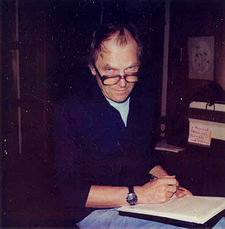- HubPages»
- Education and Science»
- History & Archaeology»
- History of the Modern Era
Key Concepts of the Philosophy of Paul Feyerabend

Paul Feyerabend was a twentieth century philosopher of science, most famous for his claim that there is no such thing as the scientific method. Feyerabend was born in Austria and trained as a physicist before becoming interested in philosophy. Initially, he was a follower of Karl Popper, but would later radically depart from him after reading the work of Thomas Kuhn and teaching Philosophy at Berkley. He was encouraged to write about his ideas about science by Imre Lakatos, another harsh critic of Popper, and the two planned to write a book called "For and Against Method" in which Laktos would argue for the scientific method and Feyerabend against it. Laktos passed away before completing his part, and Feyerabend's was published without rebuttal in "Against Method." The book was controversial upon release, and Feyerabend would later state that all his subsequent works were merely responses to misreadings of Against Method.
Against Method
The views of Feyerabend are heavily influenced by Thomas Kuhn, though Feyerabend felt Kuhn did not go far enough. In his book, The Structure of Scientific Revolutions, Kuhn argued that the idea of science as a continual progression, where new facts are added onto existing facts to create a cumulative description of reality, was false. Kuhn claimed that science was "theory laden," meaning that it relied on the presupposition of a theory in order to function. This stage was what Kuhn called "normal science", where scientists work on filling in the missing pieces of a theory. When a theory began to show inconsistencies with experiments, this results in a "crisis", and finally a "paradigm shift", after new theories are proposed and either accepted or discarded. This marked a return to "normal science," where scientists go back to trying to fill in the gaps in the new theory.
Feyerabend took this basic historical argument and added that the scientific method was a myth. He argued that for every rule one could apply to science there was an incident in history where adherence to that rule would have restricted scientific discovery. Feyerabend argued that when the "crisis" period happened, there was no way to get out of it by scientific means. Scientists were only able to purpose a new theory by using non-scientific methods. Once the new theory was accepted, these methods would be retroactively considered to be "scientific" by the establishment, even though they went against accepted scientific norms at the time.
In addition, Feyerabend argued that science proceeded "counter-inductively," meaning that it was not through a logical progression, but play that new theories replaced old theories. To Feyerabend, a great scientist is like a great artist. Einstein would be like the Beatles, while the scientists who tried to fill in the gaps of the theory of relativity during normal science were like a cover band.
Rationality, Community, and Poilitics
Feyerabend's arguments often fall in line what is labeled "postmodernism", though he never used that label for himself, and when that label is applied it is seldom to anybody who accepts the label. One of the concepts that postmodernism is associated with is relativism. Feyerabend, unlike most philosophers labeled as postmodernists did endorse a form of relativism, but he does so on practical terms rather than epistemological. Feyerabend believed that methodological relativism is a good view to have in interests of finding a better viewpoint, though admits he has no idea what that better viewpoint is.
This has much to do with Feyerabend's views on the scientific establishment. Feyerabend objected to the teaching of science as a series of facts, and instead wanted to make it clear that any scientific claim was contingent on new information, experiments, and the upholding of the current theory. He saw this insistence in viewing scientific claims as unerringly factual as being a power play by the scientific establishment. Feyerabend believed that contemporary society held scientists to the same level of esteem that the clergy once held when the church had much more influence on society.
Feyerabend's main objection to this was he thought it made society subject to the whims of the scientific establishment. Feyerabend thought that it should be the other way around, with the institution of science serving the needs and values of the community. Feyerabend also did not consider the view of reality provided by science to be complete, and encouraged people to explore other epistemological methods to answer their questions about their own beliefs, and the meaning of everything.







